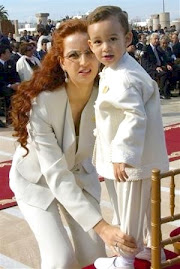There are many complexities to the property buying process in Morocco that an investor needs to be aware of before they even consider entering the market place.
But because of the desirability of property for sale in Morocco an investor should not be deterred from securing their ideal piece of real estate just because purchasing it can take many months and a great deal of paperwork!
The key to successfully navigating the real estate purchase process in Morocco is seeking the assistance of a recommended real estate agent or simsaar. These people have a local working knowledge of the property market in the particular part of Morocco in which they work and they are often able to shield the buyer from paying over the market price by understanding the true value of properties for sale.
As with many emerging markets property investors who broadcast the fact that they are in the market for real estate will often find that the places they’re offered for sale suddenly go up in price – with the help of a good simsaar the foreign buyer will pay the same as a local buyer in Morocco. A simsaar will usually charge two and a half percent of the property’s purchase price in fees and some charge a daily rate which can be deducted from this fee. The amount of time and money they can save an investor means that they are well worth their commission.
However, because these agents often speak little English or French it is usually necessary to have a translator as well and a cautious approach should be taken when finding a translator, real estate agent and solicitor in Morocco. The Moroccan people are keen to attract foreign investment and the majority of professionals an investor will deal with will be happy to genuinely assist – but as the saying goes, ‘buyer beware’ when employing anyone to assist with the buying process in any country in the world!
It’s highly likely that an investor will have a great deal of choice in Morocco particularly if they’re interested in older properties and those in need of renovation. It’s a good idea to take a camera and a notepad when examining properties because after a few days it’s easy to forget which pieces of real estate had which features! Once an ideal property has been found it’s usual to make an offer to buy and to negotiate on the asking price. Once an offer has been accepted a deposit of around 10% can be paid. The deposit or arbon should secure the property and remove it from the market place. But unfortunately the reality is that it’s wise to close the sale at the time the price is agreed upon otherwise if the vendor is offered more money before the sale is closed they may well take it and return the investor’s deposit to them.
The problem with closing the sale at this point is the fact that the vendor will require a certain amount of time to vacate the property. It’s usual therefore to close the sale, pay about 30% of the purchase price to help the vendor buy a new property, give the vendors a fixed period of between one and three months to vacate and hold back paying taxes, fees and the complete purchase price until the vendor has physically vacated the property.
There is one small problem with this approach – by officially closing the sale the taxes should be due within 30 days. BUT if you pay the taxes the sale really is closed and the buyer can refuse to move out which in the worst case scenario results in a five year legal battle to have them evicted. So what most buyers do is hold back on paying the taxes, incur a small fine but save themselves the trouble of having deeds transferred into their name and running the risk of having sitting tenants!
This may sound confusing but with the help of a decent lawyer all of this is transparent to the property purchaser. Those buying brand new or off plan property in Morocco of course avoid all of these issues.
Having got slightly ahead of myself in discussing how to proceed to closing the sale on investment property in Morocco it’s important to highlight the fact that no deposit should be paid on a property until the investor’s solicitor can determine whether or not the property’s title deeds are in order. This can take a little time but the wait is worth it because there is no central land registry in Morocco and furthermore, properties are often inherited by multiple parties and all parties have to officially give consent for a sale to take place. All of this paperwork has to be in place before a sale can be closed and a buyer should have the legality of the potential sale confirmed before handing over any money - again, with new properties in Morocco the entire process of determining who has the right to sell etc., is much simpler.
An investor looking at property in Morocco should budget an additional 7 or 8% on top of the purchase price for fees and taxes. As stated the real estate agent will charge about 2.5%, the notaire or public notary will charge 1% to sort out title deeds on older properties - a process that can take up to 2 years after the sale has completed but which will result in the property being worth more in the long run as all subsequent buyers will avoid having to repeat the process – and finally there’s also tax of about 4.5% of the purchase price on property for sale in Morocco.
Source Amberlamb
Sunday, 21 January 2007
Subscribe to:
Post Comments (Atom)




No comments:
Post a Comment